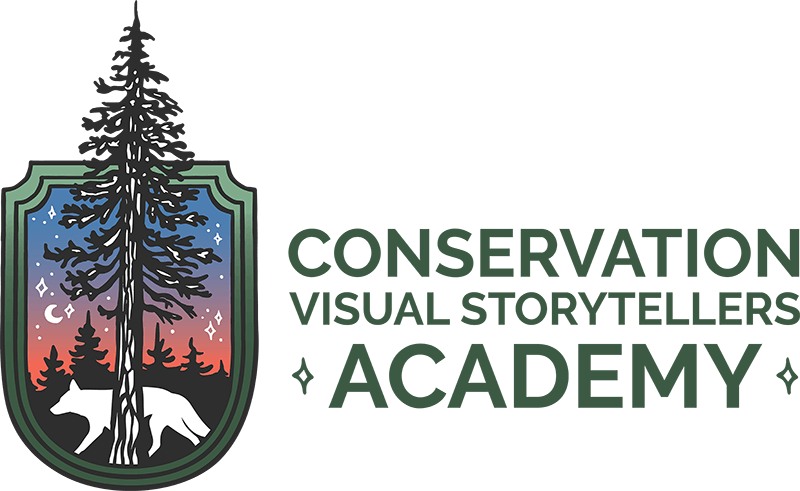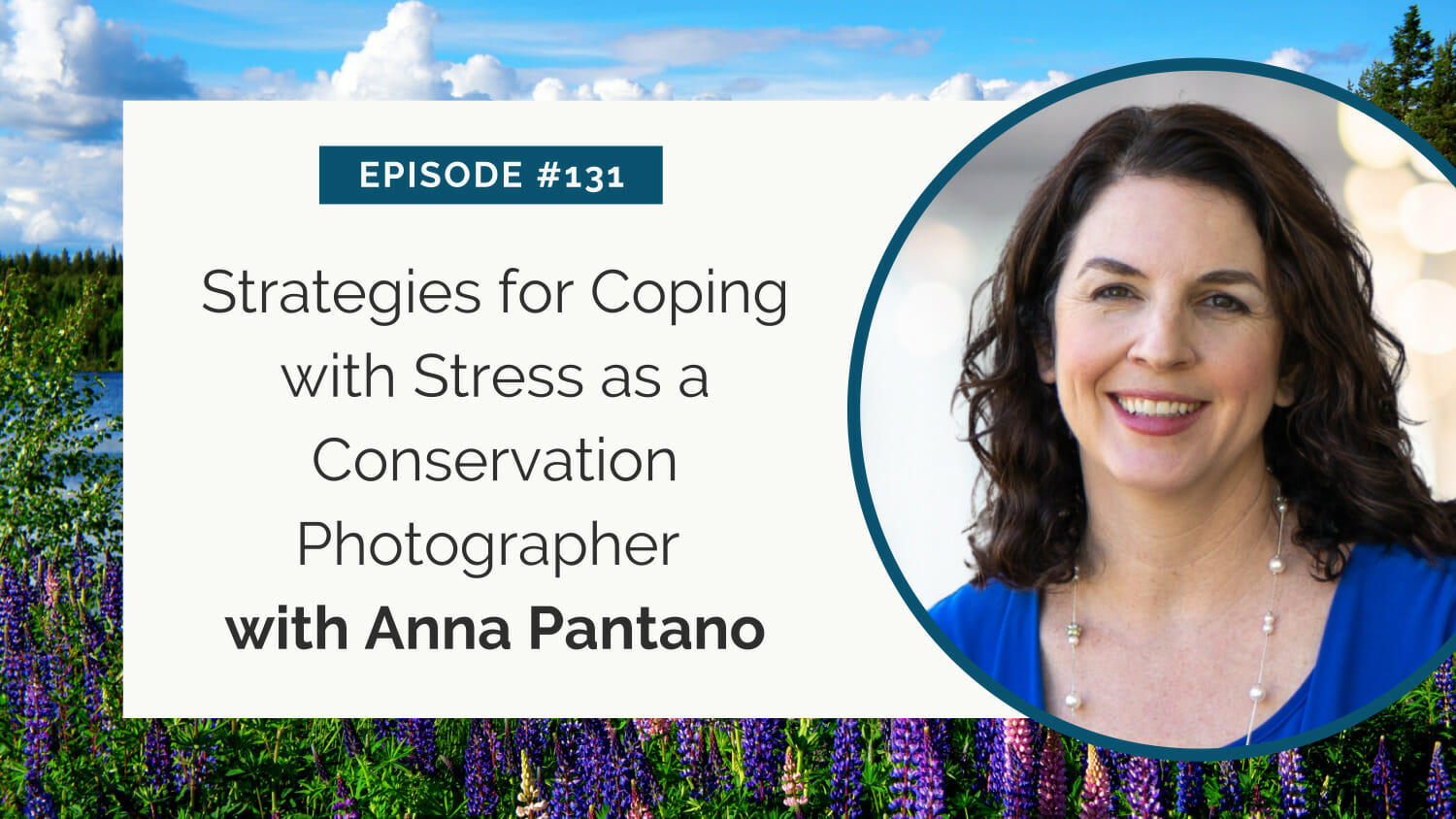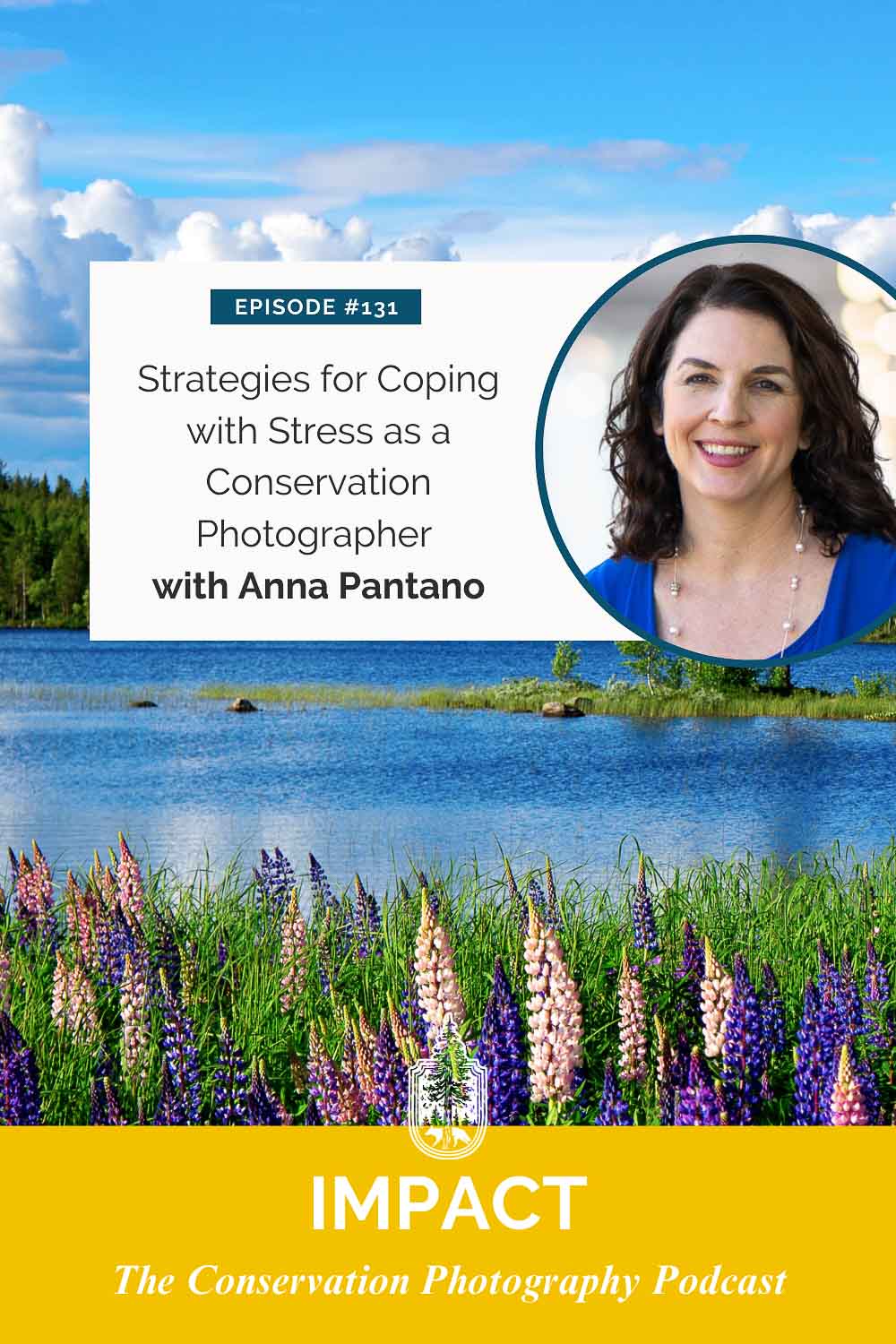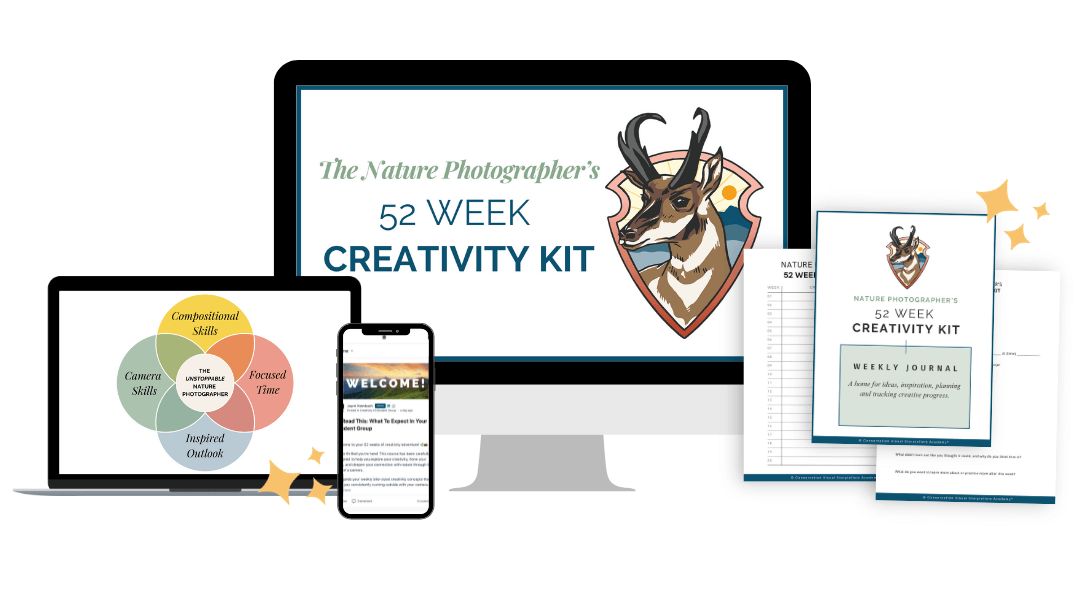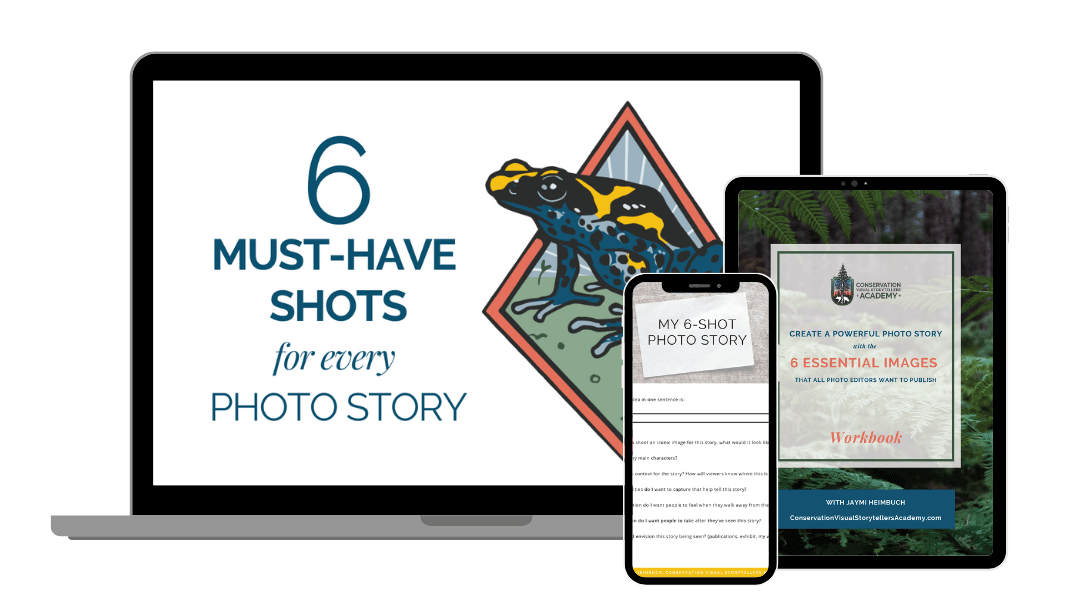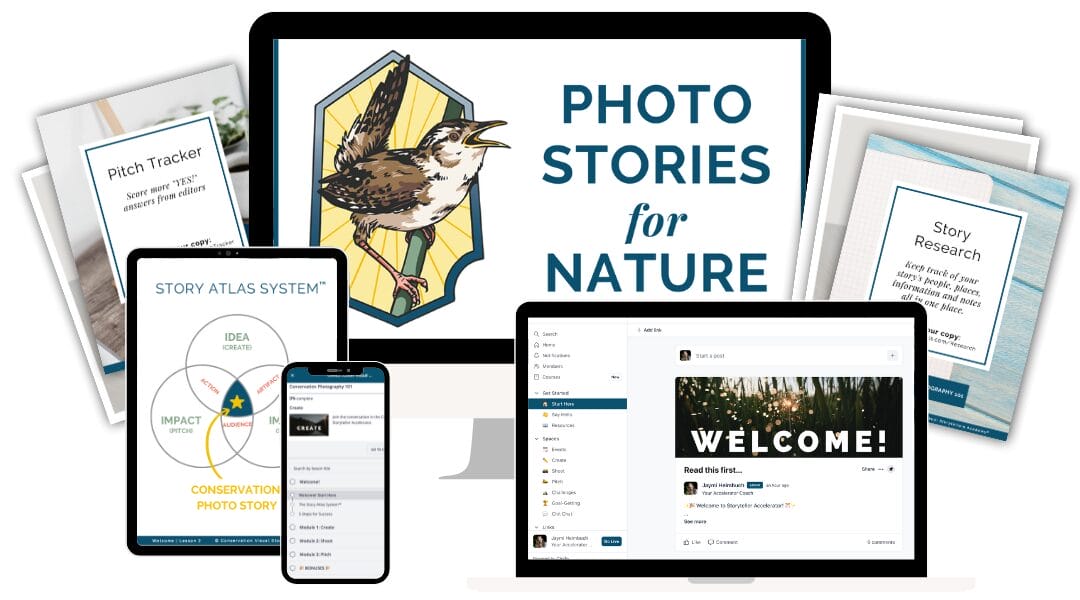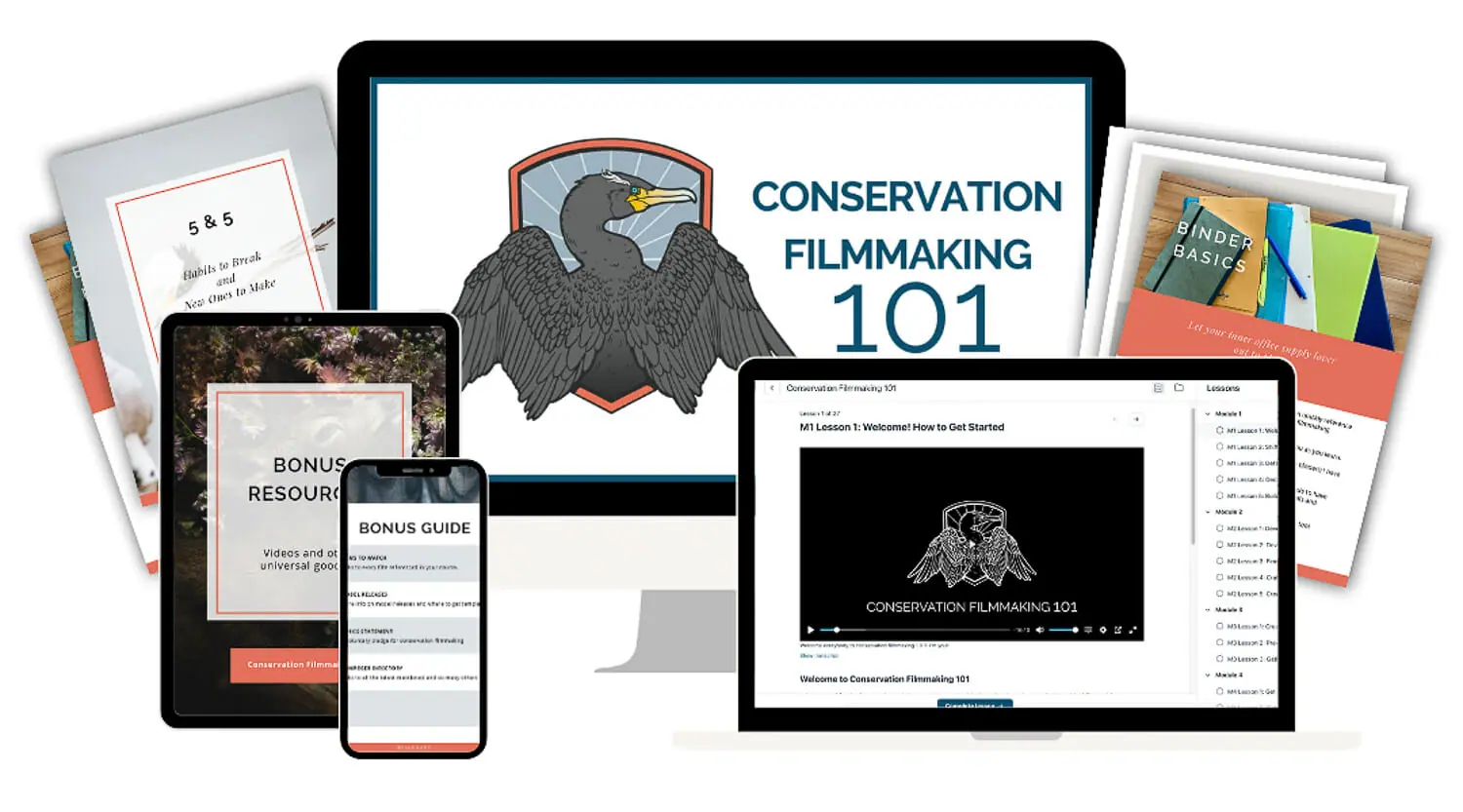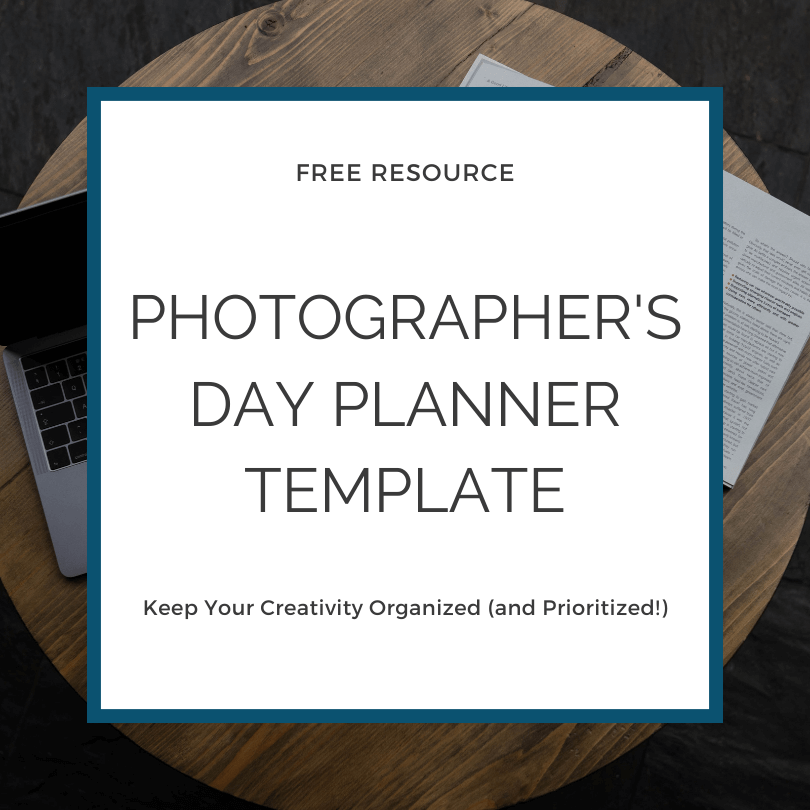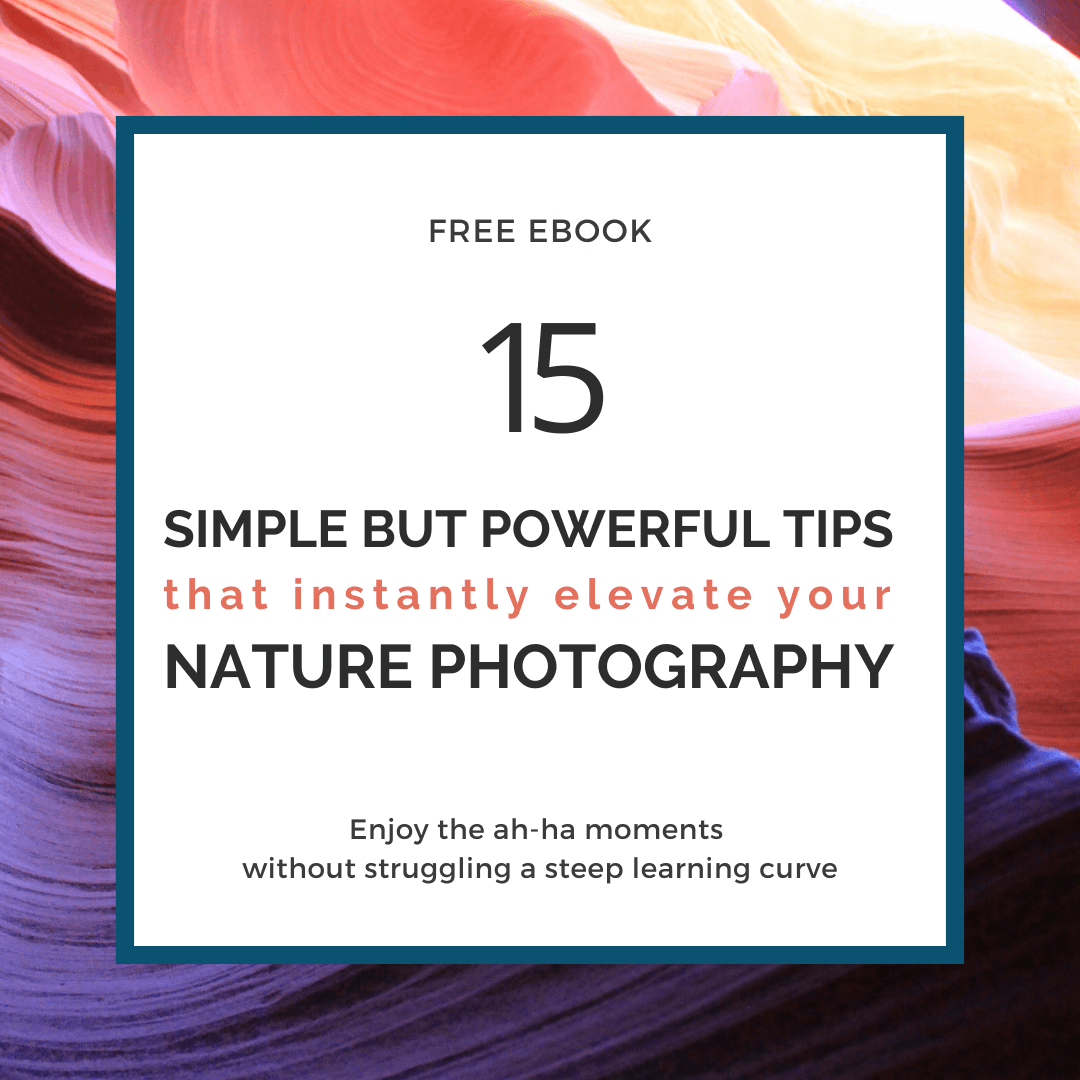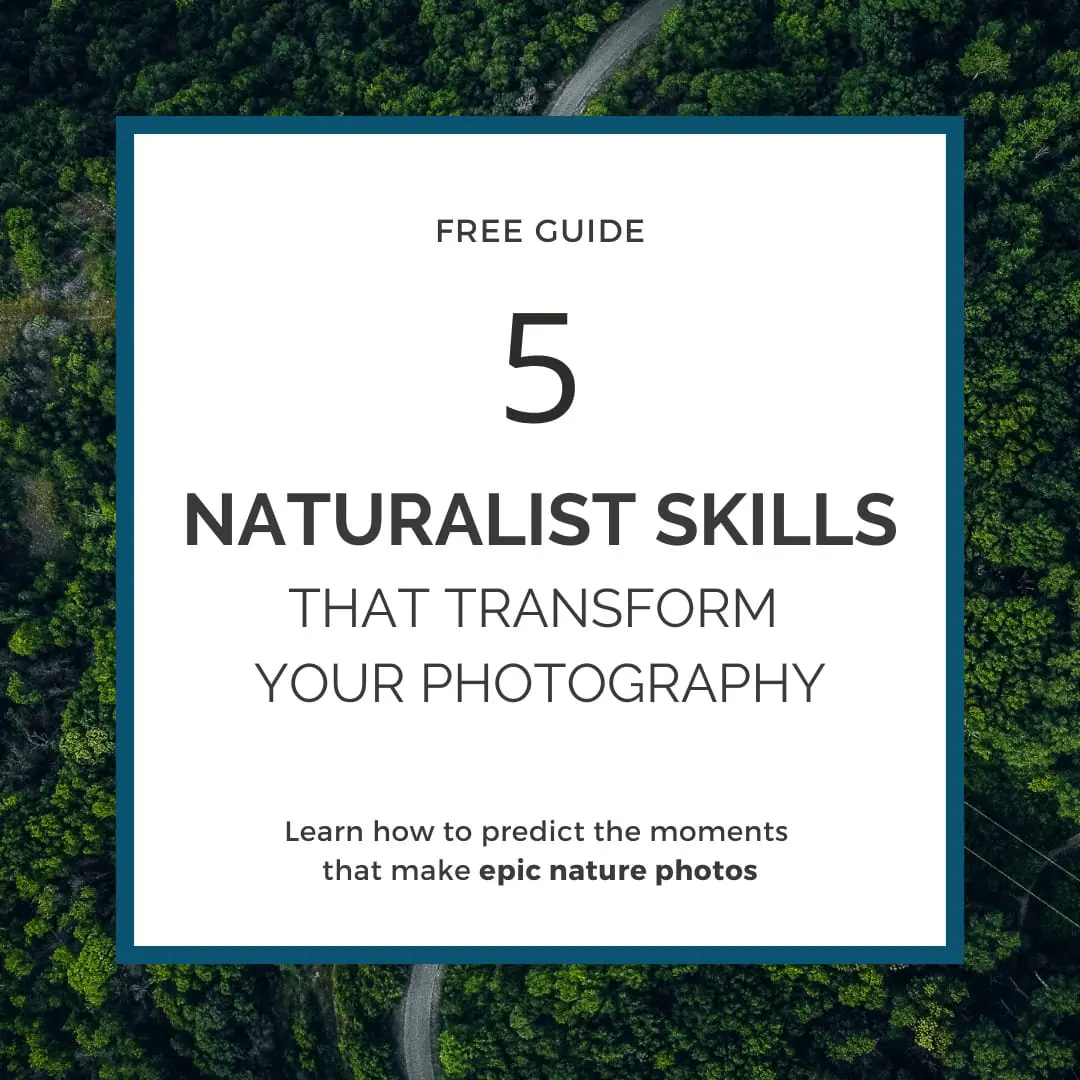Strategies for Coping with Stress as a Conservation Photographer with Anna Pantano
The work we do is tough. Get the insight you need to manage the stress of your conservation photography projects and find out how to create personalized boundaries of self-care. Discover practical advice and tips on unplugging and checking in with yourself from stress-reduction coach Anna Pantano.
Today is February 14th, and for many this Day of Love is a reminder to take some time for ourselves.
As conservation photographers, we all carry a strong emotional load with our projects, so taking time to practice self-love and self-care is essential.
Whether you're struggling with feeling mentally drained from a big workload or emotionally heavy projects, today we have an amazing special guest : Anna Pantano, an expert in mindfulness.
Join us today as we dive into this calming opportunity to hear firsthand from Anna on setting up personalized boundaries within ourselves as well as advice on coping mechanisms to get through stressful times.
You'll Learn:
- Tools to help step out of tough moments
- Techniques and advice to help manage the stress that comes along with constantly juggling multiple tasks.
- How to unplug and check in with yourself is essential.
Resources Mentioned
Episode 131: Strategies for Coping with Stress as a Conservation Photographer with Anna Pantano
Shownotes: ConservationVisuals.com/131
(Digitally transcribed, please forgive any typos)
[00:00:00] Jaymi: Welcome to this episode of Impact, the Conservation Photography Podcast. Now today is February 14th and it is a Day of Love, and I wanted to make this episode a day of self love and self care. We have a very special guest on today. Her name is Anna Panatano, and she is an expert in mindfulness in tools and techniques for stepping out of the.
[00:00:24] Jaymi: Response, stress reduction, and she is here to talk with us today about some of these tools and ways of thinking about not only stress, but also all of these emotions that come up for us as conservation photographers, because we do a whole heck of a lot. Whether you're feeling stressed from all of the projects that you're juggling or stress from a specific project that might be emotionally weighty, we really take on a whole heck of.
[00:00:51] Jaymi: We need to take some time for ourselves and to build tools that help us take better care of ourselves so that we can continue to [00:01:00] show up and make a big impact. So Anna, thank you so much for being here today with us.
[00:01:05] Anna: Well, thank you so much for having me. I'm really excited to be on your podcast
[00:01:09] Jaymi: Wonderful. Well, so for anyone who doesn't know you, which I know will be most of my listeners who are you in the world?
[00:01:17] Anna: So that's a huge question, . But so the, it's two part, there's the roles that I play, I would say. And so as far as the roles that I have, I am a mother of three. I also am a wife. I am a life coach, a mindfulness meditation teacher and yoga instructor. So those are the things I kind of do in the world, I would say.
[00:01:37] Anna: But I like to think that I am somebody who really loves to help people find what they're passionate about, help them figure out a way to get that out into the world. And one of the things I really locked onto was our stress that we carry and how that can inhibit our ability to get out. In the world. So I basically have been obsessing about how to decrease our stress [00:02:00] and how to help others figure out how to decrease their stress so that they can do what they want to do.
[00:02:06] Anna: So I just really wanna help others make the most impact they can out in the world.
[00:02:11] Jaymi: Wow. Was there any particular path that you took that helped you really land into this particular way of helping people?
[00:02:19] Anna: Well, it really just started, I think, like most people who are in this kind of profession with my own personal journey with stress and not being happy and really having a lot of physical problems and realizing that I can't. Do much good in the world or I couldn't function very well.
[00:02:35] Anna: I wasn't very happy if I didn't figure this out. So I used to get migraines, five to seven times a week and I felt really lost and I wanted to make a big impact, but I didn't feel good and my body, and so I just started to take a deep dive into how do I start to feel better and then soon realize that once I start to manage the stress, that I had a lot more [00:03:00] capacity.
[00:03:00] Anna: Motivation and focus and ability to really just do what I wanted to do. I also always wanted to make a big difference in the world and that can get quite overwhelming, which I'm assuming some of your listeners relate with. And so learning how to bring that back to what can I do in this moment?
[00:03:17] Anna: And that's kind of what set me on the path and mindfulness coupled with the personal development is where I found was kind of the sweet spot for.
[00:03:26] Jaymi: So as you're working with clients , are there commonalities that you see about why people ultimately come to you for help with managing stress?
[00:03:36] Jaymi: Are there certain things that they finally notice or things that they come to accept that says, okay, I'm, I'm gonna need some guidance on really getting through and, and learning how to manage.
[00:03:47] Anna: Well, typically when they get to me or when they come and finally say, I do need help, they are really struggling with some physical problems because that's what stress does to our body. So stress is [00:04:00] really hard on our health and like that's why I got migraines before was because I was so stressed out all the time, and so often it's that failing point or they know they're getting sick all the time and they're just really extremely overwhelmed, not just a little bit overwhelmed.
[00:04:15] Anna: And so they need some help and they recognize that they need some help to go ahead and focus on what they wanna focus.
[00:04:21] Jaymi: Got it. So there are definitely physical triggers that come up as well as maybe psychologically noticing it, but also some very clear physical. Responses to stress that are that point that people get to.
[00:04:34] Anna: Definitely, you know, unfortunately, I think most of us, and it's just how we're built that until something really. Dramatic or something really painful happens. We oftentimes won't make the moves to make the change. And yes, stress shows up in the body. I think when I first started studying this, and I'm sure there's more, there was at least 70 different illnesses that could be attributed to stress.
[00:04:59] Anna: And we know some of the more [00:05:00] common ones like heart disease and high blood pressure migraines is also common. So yes, it can definitely. Show up in your body as a physical problem.
[00:05:10] Jaymi: I know that I have kind of a weird tell when I'm getting really stressed and it'll be, I, I'll just be going along thinking, oh, I gotta get my to-do list done, or I'm thinking about this project or that thing or the other thing. And then there'll be a tell and it's like, there's a knot in my throat, like almost choking a little bit.
[00:05:25] Jaymi: That's always there. Makes it actually difficult to eat sometimes. And I didn't know what that was for quite a while. I just thought that there was something wrong with me. I went to the doctor thinking that there's, you know, some lump in my throat and. Found out, oh, that's a stress response.
[00:05:40] Jaymi: You're car you're carrying stress in your throat, which is really interest.
[00:05:44] Anna: Yes. Yeah, that's, and that's really great awareness on your part. And I'm assuming you've probably found that that's helpful to you now because now that you, when you notice it happening, you say, okay, I need to figure out what I need to do. Or at least that's what I work with my clients. Like what are the [00:06:00] signs that you are getting stressed or overwhelmed and you need, it's time to do something.
[00:06:05] Anna: So for you it was your throat, me, it was migraines and neck tension. Many people have stomach issues.
[00:06:12] Anna: lot of the IBS issues has to do with stress. So those are all good signals that your, your body's trying to show you, like you need to do something about managing your.
[00:06:22] Jaymi: Yeah, with conservation photography, I think that stress comes from a lot of places. One area of stress is. If you are trying to make a living in this field, it's a very difficult field to make a sustainable living in. And so you're constantly in the grind of working with clients, pitching ideas, keeping revenue streams coming in, and so that can be a big stress factor.
[00:06:44] Jaymi: Even if it is something that, whether it's a professional thing or a hobby that we're doing, we carry a lot of stress and balancing a bunch of projects that we wanna do and all the things that we wanna accomplish, and inside of wanting to accomplish all of that, all the things we need to learn in order to accomplish [00:07:00] that, and so we can have this gigantic running list.
[00:07:03] Jaymi: Plus, because we work in conservation, there's often a sense of urgency attached to everything that we're working on, and that's not necessarily just deadlines. Clients or for editors, but it's also a sense of urgency of we need to be talking about this thing now, or this decision about a law is gonna be happening soon, or the windows closing on being able to take action on this thing.
[00:07:26] Jaymi: And so there's a lot of that stress. There's also the stress of. Carrying the weight of that feeling, a sense of responsibility, and I have to do all I can, or I, I am someone who needs to be stepping up to help change. There's this sense of responsibility that comes with the work that we do that can be tough to carry.
[00:07:46] Jaymi: So there's all these different places. That stress comes from inside of this field. I'm curious if you, as you work with people, are there different ways of managing stress based on that [00:08:00] source that it's coming from or is once stress is in your body, it's all the same from there?
[00:08:05] Anna: Well, there's once stress is in the body and it's in your nervous system, there's definitely, you're just looking at like, how do I process and release that stress? Because the more you hold onto it, the longer you stay there the more you bottle it up and not release it, that's where the illness. Starts coming in.
[00:08:24] Anna: You mentioned probably about three or four different huge challenges that photographers are facing. And the first one is, I think, you know, common in most entrepreneurs and entrepreneurs that I work with as well, is just that balancing act of, you know, doing the schedule and getting the projects done.
[00:08:43] Anna: And how do we bring in revenue and that stress and. With that. When I, when I work with clients, I like to teach them how important the micro breaks are. So taking, you know, breaks in between things because our tendency, or at least [00:09:00] most of our tendencies that are, when we're passionate about something and we really want to accomplish something big, is just to push through and just keep going.
[00:09:08] Anna: But what we don't realize oftentimes is that if we don't take that moment, and it doesn't have to be a long moment, that's why I love mindfulness. But if we don't take those moments throughout the day, we are gonna burn out faster and not be able, ultimately not be able to. What we really want to do. So micro breaks is a huge one to help with that overwhelm of how much you need to do.
[00:09:30] Anna: And I know that sounds simple, but it's actually really powerful cuz it helps you step outta that stress response so that you can keep going and keep focusing. Also the whole idea of doing, , what's my next. best step, , what's the one thing? So really bringing it down to the micro level, which that's where a lot of our stress comes from, is because we are thinking of the whole picture and we're trying to get it all done at once.
[00:09:53] Anna: So that's a, a practice of mindfulness as well, because mindfulness is essentially paying to paying attention to the present [00:10:00] moment. So noticing what's going on internally and externally. So it means you're not planning, you know, and planning's important, but you're not planning. Five years ahead, one year ahead, two months ahead.
[00:10:10] Anna: You're not worrying about what you did last week, you're really just focusing on that one task at hand. So that was probably the first section you or the first challenge you mentioned. The second one was just this the urgency. And I think when you're doing anything that you're really passionate about and really tugs at your heart, that's so common.
[00:10:32] Anna: And what that really comes down to, or at least in my experience, has come down to, is just that reminder, that gentle reminder that you can only do so much and the more you can take care of yourself and take care of your energy and take care of your stress, the more you will be able to do. But at the end of the day, you have to be able to release.
[00:10:54] Anna: Like I've, I've done all I can. And hand it over. For some people that's a, faith, [00:11:00] a spiritual thing for some people. It's an internal thing. I think having both can be powerful, but just that knowing, I've done all I can for today and letting that, but that comes from also mindfulness, at least in my experience.
[00:11:13] Anna: So bringing that into that grounding, bringing back into the present moment that I've done what I can do, letting go of the worries of what needs to be done tomorrow. And there was a, a third one in there
[00:11:23] Anna: and I forgot what that was.
[00:11:25] Jaymi: So you did already address this a little bit, but I'd love to dig into it a little bit more. And that is the, there's a an amount of stress that comes onto conservation photographers in part because of just the sheer amount of. Kind of responsibility that we feel, but also intensity that we feel for issues.
[00:11:46] Jaymi: It can be a lot of just emotional weight that we take on when it comes to our projects. So there's often a sense of urgency and timeliness that has to happen, but there's also a sense of kind of stress that comes from. are [00:12:00] we really gonna make this change happen? Is it gonna happen fast enough to really make a difference?
[00:12:05] Jaymi: Can I make enough of a difference? Am I important enough to help with this? What can, what else can I do? And so there's this kind of sense of yeah, intensity about what we do. And I think that that can be a stress factor too.
[00:12:18] Anna: Yeah, I, that's a very heavy question. it can take a long time to really dig into that, but I'll do my best to touch upon some points that would help with that. So a couple things. One is you really don't wanna push through things you don't want to.
[00:12:37] Anna: You know, stuff it down. So all those feelings of feeling like you're not doing enough the urgency, the worry, those are all real feelings. So the best thing you can do for yourself in that situation is if you can't feel it in the moment, give yourself space and time. Like create space and time to have that downtime to feel and process those [00:13:00] emotions because they're. However, you really do need to be careful not to what's called ruminating, where you're replaying over and over again, kind of re-triggering the emotions in your own body of, and that's the, that's the language in the head that I'm not doing enough.
[00:13:18] Anna: It's never gonna be enough. Is it really making a difference? I think at the end of the day you have to get to a point where you know that if you are out there doing something and then everybody else is out there doing something that you can do a lot together. And so just the best thing you can do, and I keep coming back to this, but it's cuz it's been so powerful in my own life, the best thing you can do is keep reminding yourself of that and then say, well, how can I.
[00:13:48] Anna: Of most impact, and in my opinion, you can be of most impact. When you take care of your stress, you take care of yourself because that's gonna help you [00:14:00] be productive, be focused, accomplish as much as you can, and then hopefully with some, you know, mindfulness that breathing techniques can.
[00:14:10] Anna: Release any of that stress that you're carrying so that you can kind of stay grounded. And many of us, you know, outside of our work, we have, you know, families or we have friends and we have other things that we want to connect with. And also realizing that the more I'm holding on to or thinking about what I'm not doing or what might not happen, I'm missing out on, on my life as well.
[00:14:34] Anna: And that's an important piece of success, whether it's. In the conservation world or in the entrepreneur world, parenting being successful isn't just that one job. It's how you live your whole life.
[00:14:49] Jaymi: I love what you did right there where you took one of the questions that so many of us are always asking. , is this really making a difference? Am I really making a difference? Can I really make a [00:15:00] difference? And you flipped that question and said, what can I do right now to be of most impact? And I find so much.
[00:15:09] Jaymi: Power. I find so much helpfulness in taking a question that's very negative and turning it into one that's very positive and builds forward momentum. And for me that is a stress reduction tool is when I can go into that or when I notice that I'm going into that spiral and, and it doesn't have to be about impact.
[00:15:28] Jaymi: It could be about am I really getting enough done today? I'm not gonna be able to pull this project off. Is this project really cool enough? You know, all of these things. And then flip it into something like, what is one thing I could do today that will get me to goal? Or what is one way that I could show up in a more creative, unique way in this project?
[00:15:47] Jaymi: Or, who is one person that I might be able to bring into this conversation that can help me? An idea or look through my portfolio or something. And you did that just now with [00:16:00] the way that you framed making an impact, and I love that so much. Is that an actual stress reduction tool as reframing the questions you're asking yourself?
[00:16:10] Anna: Definitely because our brain is wired with negativity bias. I'm not sure if you heard about the negativity bias in our brain, but it is going to latch on to the I can't, or this awful thing happened. You know, at least 10 times stronger than it is any positive that you're going to hear or feel. So that reframing.
[00:16:31] Anna: You know, looking at the opportunity or what can be done as one of 'em. Also, just the reflection of what's one thing that I accomplished. that can be helpful and that helps your body go, okay, I, you know, it comes down back into the present moment and there's some positivity there and not all the worries and the stress.
[00:16:51] Anna: So yeah, definitely the reframing can be a stress reduction tool as well. So I love the question, you know, what's one thing that [00:17:00] I did accomplish today? What was one high? Of today. Do you see how blessed you are so, you know, or do you see how good your life is or what you have to be grateful for questions like that just to shift your perspective.
[00:17:12] Anna: And that's not to ignore all the things that need to be done or maybe are going wrong, but it's, you know, to help reduce that stress like you said, but also bring you into a mode or a mood where you can actually do more and of an.
[00:17:27] Jaymi: Yeah. You mentioned also that there are multiple techniques that we can do and that we can kind of dip into what some of those are. So as we realize, okay, I'm feeling really stressed, whether it's because I'm taking on a project that is very emotionally daunting or creatively overwhelming and stressful.
[00:17:46] Jaymi: Or maybe I just realize how much I'm juggling right now trying to do conservation photography and something I'm really passionate about, but I have all of these other things in my. Uh, Full-time job, family. Maybe I'm caring [00:18:00] for an a parent, maybe I'm caring for children. All of these things and I have to somehow figure out how to balance that.
[00:18:06] Jaymi: And so we arrive at this point where it's like, okay, I do recognize that I'm feeling really stressed out right now. Cause so often we don't even realize just how stressed we're getting. We arrive at this point where it's like, okay, I know that I need to do something to calm. , and not just in this moment, but consistently.
[00:18:23] Jaymi: What are some of the techniques that you bring into the picture for people at that moment?
[00:18:28] Anna: Well, in that moment there's, you know, I, I do love all the longer practices, but the reason I latched onto mindfulness is because you can do short bursts and short practices. So that's what I typically teach in the beginning, and until people get comfortable with that, the longer ones are a little bit harder to do anyways.
[00:18:46] Anna: So the first one is always the breath. Breath is one of the easiest things to help calm your nervous system. One of the reasons being is that our breath is a reflection of how we're doing. So it's a reflection of whether, [00:19:00] you know, we're sad, angry, relaxed, and so it'll get shorter and quicker as that's happening.
[00:19:06] Anna: Any of those stressful emotions are happening. Or some people will realize they're holding their breath, so they might be working and realize they're not really even breathing.
[00:19:14] Jaymi: I totally do that, by the way, and all of a sudden I'll breathe in really deep and be like, oh, I was holding my breath.
[00:19:19] Anna: So common. So common, especially when you're really focused and stressing on something. But the really cool thing about our breath is that it goes the other way as well.
[00:19:28] Anna: So we can actually influence our nervous system with our breath. And one of the quickest, easiest ways to do that is to make your exhale longer than your inhale. And it doesn't have to be any certain count. So for example, when I first teach this, a lot of times I'll teach, you know, four count, inhale. Six count exhale.
[00:19:48] Anna: If somebody can go to eight, that's great, but a lot of times that's too much in the beginning, so just four in and then six out. Also adding pauses at the top of the inhale and at the bottom of the [00:20:00] exhale just helps, you know, slow down everything. And then basically it's signaling to your nervous system that you're.
[00:20:07] Anna: And then that allows you to jump out of the stress response, cuz that's what our stress response is, is it's trying to keep us safe and it thinks there's something that we need to, you know, fight, you know, flee from, or, you know, freeze from. So that's why the stress response is kicking in, so it helps get you out of that quickly.
[00:20:25] Anna: The other one I like to teach and sometimes breath work isn't for everybody, especially in the beginning if they've had trauma. So just know. If that's, any of your listeners, don't feel like, you know, there's something wrong with you. It's just something to work with. And that's why I love seeing people, like when I teach yoga at the yoga studio or my clients, my coaching clients.
[00:20:45] Anna: But the other thing you can do is a body scan. So that can be done formally, that can be done in, you know, a five minute, 10 minute, 15 minute. There's a lot of. You know, like on Insight timer, I have some on my podcast and also on my YouTube channel. [00:21:00] But there, you know, you could Google Body Scan and listen to one, but you can also do a body scan simply just sitting at your desk and it can be done, you know, one minute, a couple minutes just by sensing you know where your feet are on the floor, what part of your body is touching, you know, the chair.
[00:21:17] Anna: What sensations are going on in the hands? What's the temperature? So just really it's that noticing of what you're feeling in your body, and that's a great one where we usually start to get aware of what our stress response is. So you were saying with your throat, so you might notice with your throat, but if you had never until you made that connection.
[00:21:37] Anna: Doing the body scan would help you learn like what your signals were. That okay, I need to take a breath, allowing you to go ahead and do it quicker next time. Cause the quicker you can catch it, the easier it is to get outta your stress response, which is why the frequent dips into mindfulness is so great.
[00:21:54] Anna: And also we didn't talk about this yet, but with the neural pathways, you can strengthen them. So you [00:22:00] can strengthen them to the stress response. And that's what's happening to most of us throughout the day as we read the news, as we think about all the things we have to do and stress out, they're being strengthened there.
[00:22:10] Anna: But the more we practice mindfulness, they're gonna be strengthened away from the stress response and into where you can, you know, be creative and be thoughtful and be compassionate and make very hard decisions and stuff like that. The last one I wanted to share with you, I wanted to share, because I know a lot of your photographers are out in nature, all the.
[00:22:30] Anna: And so it can be just taking a few moments to look around. Oftentimes they get so focused on the job at hand, or we can get so focused at the job at hand that we're not even noticing what's going on around us.
[00:22:42] Anna: So just taking a moment. , listen to the sounds around us. If there's a breeze, feel the breeze. , also getting into the body. , where my feet, what are they doing? What sensations am I feeling? You can also listen to sounds, I may have [00:23:00] said that already, but you can listen to sounds, the birds, the, the leaves, whatever is going on around you.
[00:23:06] Anna: And just taking that moment. , all this is really helpful if you, those micro breaks I was talking about doing these things, even setting an alarm on your phone. Just to remind you, you know, in an a every hour go ahead and just take five deep breaths or every, 60 to 90 minutes. I'm gonna stop and I'm gonna pause and I'm gonna pay attention to what's going on in my body.
[00:23:26] Anna: So scheduling those can be helpful because like I said, once you get beyond to where you're super stressed, especially in the beginning and noticing it, a lot of times it takes a lot more to get out of it.
[00:23:37] Jaymi: Mm-hmm. . Yeah, that makes a lot of sense. To really build up the neuro pathways Toward mindfulness, toward being aware, even if it takes an alarm and you know, an hourly alarm setting or something at the beginning, because it makes a lot of sense that once you start to build up those pathways, as soon as you notice your trigger or you notice your tell for stress, then it's like, oh, and I know how to get out of it.
[00:23:59] Jaymi: It only takes me [00:24:00] five minutes now. It only takes me four minutes now to kind of hit that reset button. So it makes a lot of sense. Definitely. I think for so many of us as nature photographers, When we're out there with a camera, we're so focused on what it is that we're photographing that I know for me, it gets really loud in my head, but I realize I'm not hearing anything around me.
[00:24:20] Jaymi: Someone could walk right up behind me and I wouldn't know that they're there because I'm so in my head, focused on what I'm creating. And then when you take that step back and all of a sudden it's like, oh, there are birds singing. Oh, they were here this whole time. Oh, that breeze is going. You know how nice.
[00:24:34] Jaymi: That can be something that really helps reset that stress right there, even if it's the stress from the images that you're trying to make in the moment. Not even big picture stress. It's just like, I just really wanna get this image. Okay, now I'm gonna take a breath.
[00:24:49] Jaymi: I'll get the image . I'm not gonna get a better image if I'm freaked out and in this camera like crazy. So when you're starting to build that [00:25:00] practice for the stress response, All of these are sort of coming into a larger toolkit that you can pull from based on the type of stress that you're feeling.
[00:25:09] Jaymi: Right.
[00:25:10] Anna: Yes.
[00:25:11] Jaymi: Okay. So as, as we build that toolkit, are there certain moments that you say, oh, well pull out this type of tool instead of this one? Or, or is it really something that each person can individualize completely based on what works for them and build a practice from.
[00:25:27] Anna: Ultimately I do think that you can individualize. Mindfulness, and that's what I love about it because there are so many tools and you're gonna find what you really like and what works for you in the beginning, that can be really hard for people. So just picking one to practice and trying that and bringing that in.
[00:25:47] Anna: I'm partial to breath work, but I know it's not for everybody. Some people also really struggle with body scans because we live in our head so much, and for that, I just encourage people [00:26:00] if that's them to be patient and even if it's that they notice when they wiggle their finger, they feel a certain sensation to start playing with that and.
[00:26:11] Anna: One other thing that I really like breathwork probably the most for is because I feel like it's something that you can do. Like even if you're sitting in a meeting and nobody has to know that you're doing it, you know it is helpful to, you know, exhale through the mouth open. But you can sit there and just take deep breaths and feel that you know, you're the expansion of your belly and feel it decrease and it will start to work, especially if you've been practicing it.
[00:26:36] Anna: So I would say if you're gonna try anything, is to start playing. Some breath work, some deep breaths, and that longer exhale and there's, there's many, many other ways to play with breath work.
[00:26:46] Jaymi: Awesome. Well, you talked quite a bit about stepping out of the stress response and these tools that we have to stress. One other. Area that I would love to dig into with you is that we feel stressed because often [00:27:00] of emotional weight that we carry whether that is frustrations in what it is that we're seeing going on, that we really wanna help change or despair so for one example would be if you are someone who's focused on an issue around an endangered species and maybe there's not much hope for that species and so there's a lot of despair there. Or maybe you're working in wildlife trafficking or you're working in captive animals, or there's these areas that we can work in as conservation photographers that can hold a lot of emotional weight.
[00:27:35] Jaymi: And again, also, Just the frustrations of working on a project and needing to deal with people who can be very frustrating because they have very different opinions about the world and we're trying to create a certain amount of awareness around an issue, and often you're working with people who don't see it that way.
[00:27:54] Jaymi: So there's definitely an amount of compassion fatigue that can pop up. I'm [00:28:00] curious to, to ask your thoughts on even the best ways to cope with all of this emotion that comes up. You know, some people feel, Hey, I just need to really harden my heart around this and, and tough it out. Whereas other people feel I need to feel all of these emotions, but if I feel all of these emotions, it's just that much harder to actually move forward. How do we start to understand what's a wise way to cope with these weighty emotions? And then are there tools that you suggest around that?
[00:28:33] Anna: Well, a lot of the tools ultimately are gonna be similar to just how do you step out of the stress response, because that is kind of the key to keeping yourself aware of what's going on so you know what you need. Because to tell somebody who is really stressed and overwhelmed and dealing with compassion fatigue to take care of themself, most of the time they'll say, I don't even know where to go with that.
[00:28:58] Anna: I don't know what to do. [00:29:00] So the stepping out of the stress response on a regular basis is the first piece of that. We wanna build both our resilience and our awareness and mindfulness helps you with that. So that will help you overall and it'll help you with the stress, it'll help you with the compassion fatigue around emotions.
[00:29:20] Anna: I really caution people against. Strictly hardening their heart with it. I do understand there's, there's a point where you can't, you know, go to a photo shoot or you can't go to meetings, I'm sure and talk and then just be like this emotional mess and just falling apart. So there is, there is some merit to learning.
[00:29:42] Anna: How do I contain the emotions temporarily? And that's the key, is to contain them temporarily if needed. However, if you're, if that is the way that you can show up to do the work you need to do, you need to be really mindful or really [00:30:00] aware that you carve out time to take care of those emotions, because if you don't, they become very toxic.
[00:30:07] Anna: In your body and that's where you're going to get the illness or the chronic illness or disease. Or disease in your body. It also, because we can strengthen and weaken our neural pathways, the more, especially if you work full-time and you're hardening your heart full time, it's gonna start to spill out into.
[00:30:30] Anna: To the rest of your life. So if you are closing things off so that you don't feel so, you don't get overwhelmed, eventually that can become your default. And so then when you come home to say a partner or a friend or a spouse or kids, it can be hard to go ahead and reopen the heart because you are getting so practic at keeping it closed down. and in my opinion, true success [00:31:00] and anything has to do with the whole picture of our life. So you may be doing really well at your job and at your mission and your task and what you're trying to accomplish, but then if you don't have joy or connection when you go home to me, that ultimately will fall apart or that's not true success and it's not sustainable.
[00:31:21] Anna: I don't. So that's my caution towards hardening the heart, how you can go into that, if that is how you need to get through your day or that's how you feel you need to get through your day Is. To schedule time where you actually spend time with the emotions that are coming up. And this can be really challenging and feel really scary to people.
[00:31:45] Anna: One of the things I can't remember her name. She had the, I think it's called the Stroke of Insight, but she figured out that our emotions basically live in our body for about 90. But those 90 seconds can be really scary. But the [00:32:00] most of the time, the reason they're scary, the feelings and the emotions can be scary is cuz we think they're not gonna end.
[00:32:06] Anna: So sometimes just reminding yourself that they're gonna come in and wave about 90 seconds, and if you can take those deep breaths and release them and let them go, they may come back up a little bit. You know, it's not like 90 seconds and you're done. least, you know, or you can kind of chain yourself to know that it's not, I'm not gonna completely fall apart.
[00:32:27] Anna: I'm not gonna not be able to get off the couch. And the only reason those will keep continuing, I mean, the waves might continue on their own, but they'll decrease over time. But your brain can influence how you're feeling. So if you're doing that ruminating. So just really being aware of like, am I ruminating over something and kind of creating, and we can get addicted to that emotion or.
[00:32:48] Anna: You know, am I creating this feeling and the sensation in my body and having it take on too long? So it's kind of this balance between letting the emotions come up and just acknowledging 'em, feeling 'em in your body, [00:33:00] taking those deep breaths and releasing, but not to keep, get, get stuck there. And so that, that's with kind of hardening the heart.
[00:33:09] Anna: And I do understand with keeping the heart open, I tend to lean towards that way just cuz like I said, I feel like it helps you. You know, have a better life all around, not just in the mission that you're working on. It's, you can connect to people. And that's really what life is about for me anyways, is the connections we make with people with nature, with our world.
[00:33:31] Anna: And so if you close the heart, you're taking that out, in my opinion. But with the heart being completely open, sometimes that can make it to where. Really overwhelmed and stressed. The anxiety can be really strong in those positions. So again, using the mindfulness to bring you back into the present moment can be very helpful there.
[00:33:53] Anna: And if you're having a hard time getting your job done, learning those techniques to keep you grounded, like sometimes just. [00:34:00] Sensing the sensations in your feet, getting yourself outta your head can help taking those deep belly breaths, doing the longer exhale, any of that will help you kind of bring you back into the present moment so that you can do what you need to do.
[00:34:14] Anna: When I work with clients, I teach them, especially if they feel disconnected or they are having a hard time processing some of the emotions. I do teach them how to do a meditation where they actually feel into it and notice what's going on in their body. What's the story they're telling themselves?
[00:34:31] Anna: What's the language they're using? What feelings are coming? And then we teach them how to, you know, kind of shake that off and you can actually physically get up to shake that off, like do body shakes or just walking around the room or take a walk outside. And then for some people that's enough, and that processing of emotion will give people more capacity.
[00:34:49] Anna: To be creative, to be loving, to do what they need to do. And then for others, we'll work with going from processing the motion, going into neutral, [00:35:00] and then moving into something more positive. Cuz positivity and gratitude gives us all that energy focus and all the things that we love to have more of.
[00:35:09] Anna: So doing that kind of exercise or longer exercise can be helpful.
[00:35:13] Jaymi: Wonderful. That helps a lot. I remember running a workshop, a conservation photojournalism workshop that was in person. This was back in 2019, I think. And. As we were sitting around the dinner table with all of the students, the conversation got brought up of how do you deal with the weight, weighty emotions that come up with this.
[00:35:33] Jaymi: And we had a range of perspectives on what it looked like from. I just, I have to deal with it in the moment and then I put it away and I just don't look at it again because I, I have, I deal with it so often that I have to put it away in order to keep moving forward. Whereas someone else was like, I have to keep my heart open and deal with it in the moment every single time, or else I feel like I won't have emotional capacity to care anymore.
[00:35:59] Jaymi: [00:36:00] And so that's how. Going is like that time to care. And there were other people who were already feeling pretty overwhelmed and like, okay, but I have all these feels. What do I do with them? And it, it comes up a lot because you might even be working with a specific animal for a story. And if something traumatic happens to that animal, there's grief that you feel there's the people in a community that you're documenting and seeing what they're going through and feeling.
[00:36:28] Jaymi: You're powerless except for the documentation that you can do. There's so many different ways that this comes around, and so to know that there's safety in letting yourself feel the emotion, it's not gonna last forever. Make space for that, and then that's how you can stay open to continuing to do your job. It feels really good to hear that there's ways to do that that can be so constructive and so positive and actually reaffirming for you and strengthening for you as you go through that process so that you can be a bolder, [00:37:00] stronger, more capable conservation photographer because you can navigate these emotions that come up.
[00:37:05] Jaymi: You don't have to shy away from it cuz it's too hard and you don't have to just charge through because that's the only way there's a way to navigate that. So thank you so much for walking us through that.
[00:37:15] Anna: Oh, my pleasure.
[00:37:16] Jaymi: Well, for anyone listening who is really resonating with this, they're like, oh, man, I, I understand that stress all too well. I want some tools or I am figuring out how to cope with a lot of this stuff. I want to work with you. How do people find you and work with you and get at all these amazing resources that you're, you have built and are building for?
[00:37:37] Anna: Well, thank you for asking. So I have a website, it's anna pano.com, and on that website I have my Embodied Wellness. Program, and that's a hundred percent customizable so that people can come in wherever they're at. So if they've been meditating for a while, we can start there and help them on whatever their goals are.
[00:37:57] Anna: But if they're completely brand new and they're just feeling [00:38:00] overwhelmed or stressed or compassion fatigue, we can go ahead and start there and teach them from the beginning. I am actually though next month going to launch a membership, so I have a wait list for my membership that's gonna be for my founding members.
[00:38:16] Anna: And in that we are really gonna take a dive, a deep dive into being mindful how do we apply this to our life? so that you can really accomplish what you want to accomplish, have the impact you want to , have, and also just take care of your, your stress response, your chronic stress, so that you can really stay grounded, become aware of what you need, what your body needs. So be a combination of practicing the mindfulness tools and having question and answer, and then also doing some teaching around coaching.
[00:38:48] Anna: So that will be my membership that will go deep into that. We'll be doing that in March. But for now, I have a podcast and you can kind of get a sampling of what we'll be going into deeper in the membership on that [00:39:00] podcast, because I alternate mindfulness practices, very simple mindfulness practices that you can apply or do as you listen to the podcast.
[00:39:08] Anna: And then I also talk about different things like we talked about today. Negativity bias, talking about how do we shift our focus and different things like that as well. And the podcast is called Striving from Stillness.
[00:39:21] Jaymi: Oh, I love that name. I am so excited to hear that you have a membership rolling out. I did not know that before we started our interview, and that feels like something that can be an incredibly powerful tool for so many of us. To be able to really start to build these skills up, build it as part of our just daily practice, and then have that training and support the whole way.
[00:39:42] Jaymi: So I'm very excited that that's rolling out. I'll make sure that, for anyone listening, if that is something that interests you, the link is gonna be in the show notes. So where you're listening right now, just scroll down to the show notes.
[00:39:53] Jaymi: You'll see the link and it'll be really easy to get to. I, I'm thrilled.
[00:39:57] Anna: Good. I'm excited too. I'm so [00:40:00] excited. I love sharing this stuff. I love seeing the transformation in my students and my clients, and it just, it makes my heart happy, so I'm really excited about it.
[00:40:09] Jaymi: Well, it made my heart happy having you here on the podcast today. Thank you for all of the expertise that you're giving us for insights to how we can cope with things and, and honestly, it. think sometimes we really need the reminders that there are very simple, clear tools that we can dive into, that we don't have to overcomplicate it, that we can return to these kind of fundamental tools that can be so helpful, but it's so hard to remember how helpful it is to just take a breath, take a moment, take a, take a something for yourself.
[00:40:40] Anna: It is, it is, and my hope really is that people won't wait so long. They won't wait until they're completely burnt out and have to take a month retreat or to completely give up, or they're feeling so sick that they, you know, have to do something. My hope is really that they can. You know, come and learn and take care of themselves.
[00:40:59] Anna: And also, I [00:41:00] just love what your audience is doing out in the world. And so I just, I feel so grateful to be able to share some of these tools so that they can keep going out and doing wonderful and impactful things.
[00:41:11] Jaymi: Oh, thank you so much. Well, thank you, Anna. This has been a joy, and again, for anyone listening, check out the show notes for links. Anna, thanks so much.
[00:41:21] Anna: Thank you.
